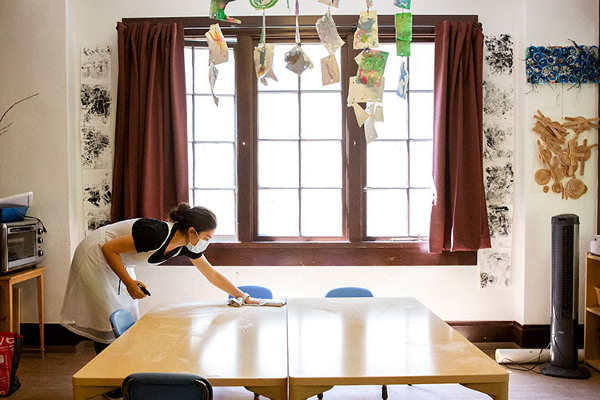- Lake County News reports
- Posted On
Local project among those Caltrans approved to reduce greenhouse gas emissions and expand services
These projects will improve the sustainability of transportation systems and help to reduce greenhouse gas emissions.
Approximately $140 million for 158 projects will benefit disadvantaged communities most affected by climate change.
“This investment will help reduce our impact on the environment and improve transit service, particularly for those facing economic barriers to mobility,” said Caltrans Director Toks Omishakin. “Greater access to transit options will lead to decreased dependence on driving and cleaner air for all Californians.”
The Low Carbon Transit Operations Program, or LCTOP, was created in 2014 to provide operating and capital assistance for transit agencies to reduce greenhouse gas emissions and improve mobility, with a priority on serving disadvantaged communities.
These projects support new and expanded bus, rail and intermodal transit facilities that include equipment acquisition, fueling and maintenance.
This year’s funding process took place during the COVID-19 pandemic, and some projects were revised to fit emerging health and safety priorities.
For example, some agencies expanded dial-a-ride and fare-free services to increase access and protection for their riders and operators.
Some of the projects that will benefit from LCTOP funding include:
– Fifty-five projects offering free or reduced fares to encourage lifelong transit users, including young riders, seniors and veterans:
North Coast transit agencies including the City of Arcata, Humboldt Transit Authority and Lake Transit Authority: Approved $339,997 for three projects offering free fares to populations that include low-income residents, youth, and college students.
City of Los Angeles: Approved $1.37 million for the second operating year of free fares on Los Angeles Department of Transportation Downtown Area Short Hop services for Los Angeles Unified School District students K-12 and Los Angeles Community College students.
San Joaquin and Stanislaus counties: Approved $1.79 million for nine projects to expand free or reduced fares.
Monterey-Salinas Transit: Approved $846,826 for six projects to allow free weekend fares in Salinas, summer youth passes, and free fares for college students.
– Thirty-seven projects providing new and expanded transit service for better access to jobs and educational sites, as well as expanding transit options on nights and weekends:
Sacramento Regional Transit District: Approved $3.38 million for four projects that include core bus routes and expanding light rail from the Sunrise station to Folsom.
City of Fresno Department of Transportation: Approved $832,746 for changes to five bus routes and the creation of a new route to increase transit ridership, convenience and reliability of service.
Kings County Area Public Transit Agency: Approved $118,000 to increase bus frequencies to 30-minute intervals on eight weekday routes.
Ventura County Transportation Commission: Approved $550,000 for continuation of the new Cross County Transit Service connecting communities in eastern and western Ventura County. These routes serve low-income populations with stops that connect disadvantaged communities.
– Twenty-six projects purchasing replacement zero-emission vehicles:
San Diego Metropolitan Transit System and North County Transit District: Approved $8.42 million for continued projects to procure zero-emission buses.
City of Arvin: Approved $41,362 to complete its fourth year of roll-over funding to replace diesel buses with zero-emission versions and install charging stations.
Livermore Amador Valley Transit Authority: Approved $471,778 to purchase four 40-foot, zero-emission buses and provide necessary improvements to replace diesel-electric hybrid buses at the end of their lifespan.
– Fourteen projects purchasing, constructing, or installing passenger amenities at transit stops/stations to encourage increased transit ridership:
County of Siskiyou: Approved $84,191 for upgrades to 50 bus stops featuring bus schedule holders and Americans with Disabilities Act (ADA) concrete work.
Mountain Area Regional Transit Authority: Approved $102,167 to improve bus stops by including ADA compliant access, and providing protection from inclement weather conditions and seating accommodations for disabled and senior riders while waiting for buses.
Plumas County Transportation Commission: Approved $38,973 for construction of solar illuminated bus stop shelters.
LCTOP is funded by the Cap‑and‑Trade Program from the Greenhouse Gas Reduction Fund.
The Cap-and-Trade Program is one of many programs developed under AB 32, the California Global Warming Solutions Act of 2006 implemented to fight climate change. It is designed to reduce greenhouse gases from the largest sources of emissions in California, to drive innovation and steer the state toward a clean energy economy.

















